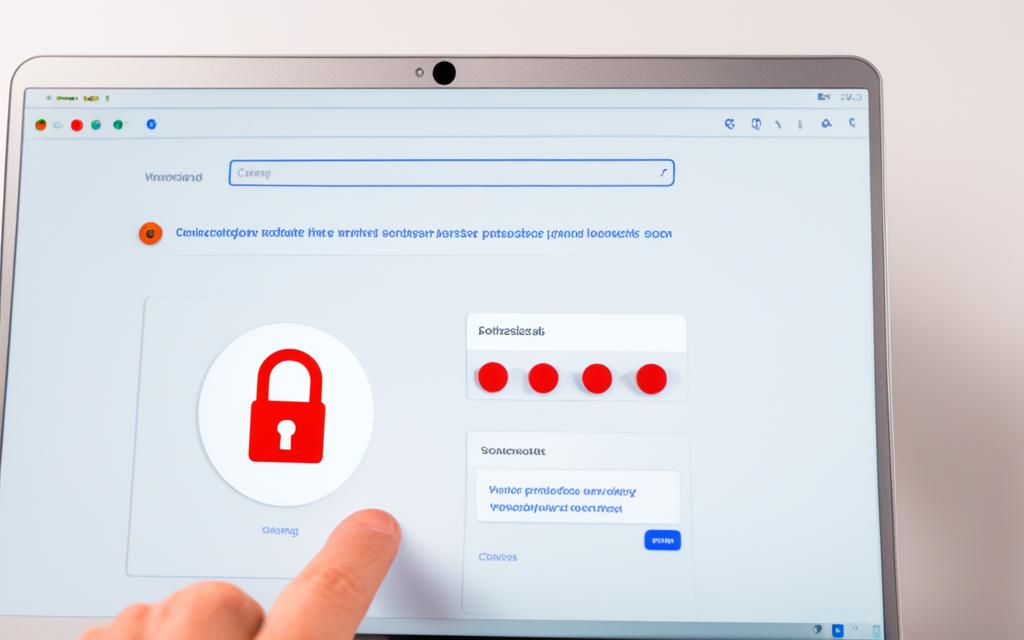What is Torrenting? Unveiling the Basics
Have you ever wondered about peer-to-peer file sharing? Then you’ve probably heard of torrenting. But what is torrenting exactly? It is a method used to share large files such as movies, music, or software between users over the internet. Unlike traditional file-sharing methods where you download an entire file from one source, torrenting involves downloading a file in small chunks, simultaneously from multiple sources. It’s a faster and more efficient way to obtain large files, hence its popularity.
Although torrenting has been around since the early 2000s, many people are still unsure about how it works. In this section, we will define what torrenting is and provide a basic understanding of how it works. So, let’s dive in and explore the world of torrenting together!

The Mechanics of Torrenting
Torrenting relies on specialized software that allows for the sharing of large files between users via peer-to-peer connections. The most popular torrenting software includes BitTorrent and uTorrent, both of which are widely available for download.
Torrenting sites, such as The Pirate Bay and KickassTorrents, provide users access to vast libraries of files that can be shared with others. However, it is important to note that not all content on these sites may be legal to download, so users should exercise caution and be aware of the potential risks.
Benefits of Torrenting
Torrenting provides several benefits to users, making it a popular choice for peer-to-peer file sharing. One of the significant advantages of torrenting is the ability to download large files quickly and efficiently. Unlike streaming services, where users stream content in real-time, torrenting allows users to download files and store them locally, making it easy to access files without buffering or internet connectivity issues.
In addition, torrenting offers users a wide range of content options, including obscure and hard-to-find files. Torrenting websites host a vast selection of files, ranging from movies, TV shows, and music to software, games, and e-books.
Another aspect that makes torrenting attractive to users is the cost-effectiveness of the service. While streaming services require users to pay monthly subscriptions, most torrent websites offer content for free, making it an accessible option for budget-conscious users.
Compared to streaming services, torrenting is also more flexible, allowing users to customize their downloading speed and select specific files to download. Additionally, many torrenting clients offer advanced customization options, making it easy to set upload and download limits, seed ratio, and other preferences.
Overall, torrenting offers several benefits over traditional streaming services, providing users with a cost-effective, flexible, and efficient way to download and access files.
Risks of Torrenting
Torrenting is a popular method of sharing large files over the internet. However, it comes with potential risks that users should be aware of. One of the main risks of torrenting is copyright infringement. Torrenting copyrighted material without permission is illegal and can result in significant legal consequences, including fines and even imprisonment.
Another risk of torrenting is the possibility of downloading malware or viruses. Hackers often use popular torrenting sites to distribute malicious files that can harm your computer and steal sensitive information. These files can be disguised as legitimate files, making it difficult to spot them.
Furthermore, your internet service provider (ISP) may monitor your torrenting activity, and they may throttle your internet speed or even terminate your service if they detect illegal or excessive downloads. This can negatively impact your online experience and make it difficult to access online services.
Overall, it’s essential to be aware of these risks when engaging in torrenting. Taking precautions such as using a reputable VPN, scanning files for viruses, and avoiding pirated material can help mitigate some of these risks.
Safety Measures for Torrenting
If you’re planning to engage in torrenting, it’s crucial to take necessary precautions to secure your privacy and protect your device from harmful malware. Here are some essential torrenting safety tips:
Use a Reliable VPN
One of the best ways to stay safe while torrenting is by using a Virtual Private Network (VPN). A VPN ensures your online activity is private and anonymous by encrypting your internet connection. It also enables you to access geo-blocked content and protects your identity from cybercriminals and hackers. However, not all VPNs are created equal, so be sure to choose a reliable and trusted service provider.
Use a Trustworthy Antivirus Program
Malware is a common threat when downloading files from torrenting websites. Therefore, it’s vital to install a trustworthy antivirus program to scan and identify malicious files and prevent them from infecting your device. Ensure you frequently update the antivirus software to stay protected against the latest threats.
Verify File Authenticity
Before downloading any file from a torrenting website, it’s crucial to verify its authenticity. Ensure the file you’re downloading has a good reputation and is from a reliable source. One way to do this is by checking the user comments and ratings on the website.
Utilize a Firewall
Enabling a firewall can help block cyberattacks and prevent unauthorized access to your device while torrenting. It adds an extra layer of security to your system and protects it from various threats.
Read the Terms and Conditions
Before downloading any file, ensure to read the website’s terms and conditions regarding copyright laws and file usage. Adhering to these regulations can keep you out of legal trouble and protect you from copyright infringement claims.
By following these essential torrenting safety tips, you can ensure a safer, more secure, and hassle-free experience while engaging in peer-to-peer file sharing.
Torrenting and Copyright Laws
Torrenting has been a hot topic in recent years due to concerns around copyright laws. It’s important to understand that while torrenting itself is not illegal, downloading and sharing copyrighted material without permission is a violation of the law. This includes movies, music, books, and software.
Many countries have different laws on torrenting and copyright, so it’s crucial to check your local regulations. However, it’s essential to note that regardless of the law, engaging in illegal torrenting can result in severe legal consequences, including hefty fines and even imprisonment.
To prevent any legal issues while torrenting, it’s crucial to be aware of what you are downloading and sharing. Stick to legal content and always check if the material you want to download has been approved for free distribution by the owner.
Overall, it’s essential to understand torrenting and copyright laws to avoid any legal issues that can arise from illegal activity. By being informed and making conscious choices while torrenting, users can enjoy the benefits of this file-sharing method while staying on the right side of the law.
Conclusion
In conclusion, torrenting can be a useful and efficient way to share files between individuals. However, it is crucial to understand the risks and take appropriate safety measures to protect your privacy and avoid potential legal consequences.
While there are some benefits to torrenting, such as faster download speeds and access to a vast array of content, it is important to consider the potential risks, including the spread of malicious files and copyright infringement.
By following some basic safety tips, such as using a reputable VPN and avoiding suspicious files, users can safely engage in torrenting and enjoy its benefits. It is essential to stay informed about the current regulations and laws surrounding this practice to avoid any legal issues.
Overall, torrenting can be a valuable tool for file sharing, but it is crucial to approach it responsibly and with caution to avoid any negative consequences. By understanding the basics, mechanics, risks, and benefits, users can make informed decisions and enjoy the advantages of this popular file-sharing method.
FAQ
What is torrenting?
Torrenting is a method of file sharing that allows users to download and upload files simultaneously. It involves the use of a decentralized network where files are broken down into small pieces and shared among multiple users.
How does torrenting work?
Torrenting works through a peer-to-peer network, where users known as “peers” share and download files. When a user wants to download a file, they access a torrent file or a magnet link, which contains information about the file and connects them to other users who have the desired file. The file is then downloaded in small pieces from multiple sources simultaneously.
What are the benefits of torrenting?
Torrenting offers several advantages, including faster download speeds due to the ability to download files from multiple sources, the availability of a vast range of files and content, and the ability to resume interrupted downloads. Additionally, torrenting allows users to access rare or out-of-print content that may not be readily available through other means.
Are there any risks associated with torrenting?
Yes, there are risks associated with torrenting. Some of the potential risks include downloading copyrighted material without permission, exposing your computer to malware or viruses that may be embedded in torrent files, and potential legal consequences if engaging in illegal content sharing.
What safety measures should I take while torrenting?
To stay safe while torrenting, it is recommended to use a reliable antivirus software, download files from reputable sources or torrents with a high number of seeders, avoid clicking on suspicious links or ads, and use a virtual private network (VPN) to protect your privacy and mask your online activity.
How does torrenting compare to streaming services?
Torrenting and streaming services differ in their approach. Torrenting allows users to download files for offline use and provides access to a wider range of content. In contrast, streaming services offer instant access to content without the need to download, but the available content is typically limited to what the streaming platform offers.
What are the current copyright laws regarding torrenting?
Copyright laws vary by country, but in general, sharing copyrighted material without permission is illegal. Engaging in illegal torrenting can lead to legal consequences such as fines or even imprisonment, depending on the severity of the offense and the jurisdiction in which it occurs.




